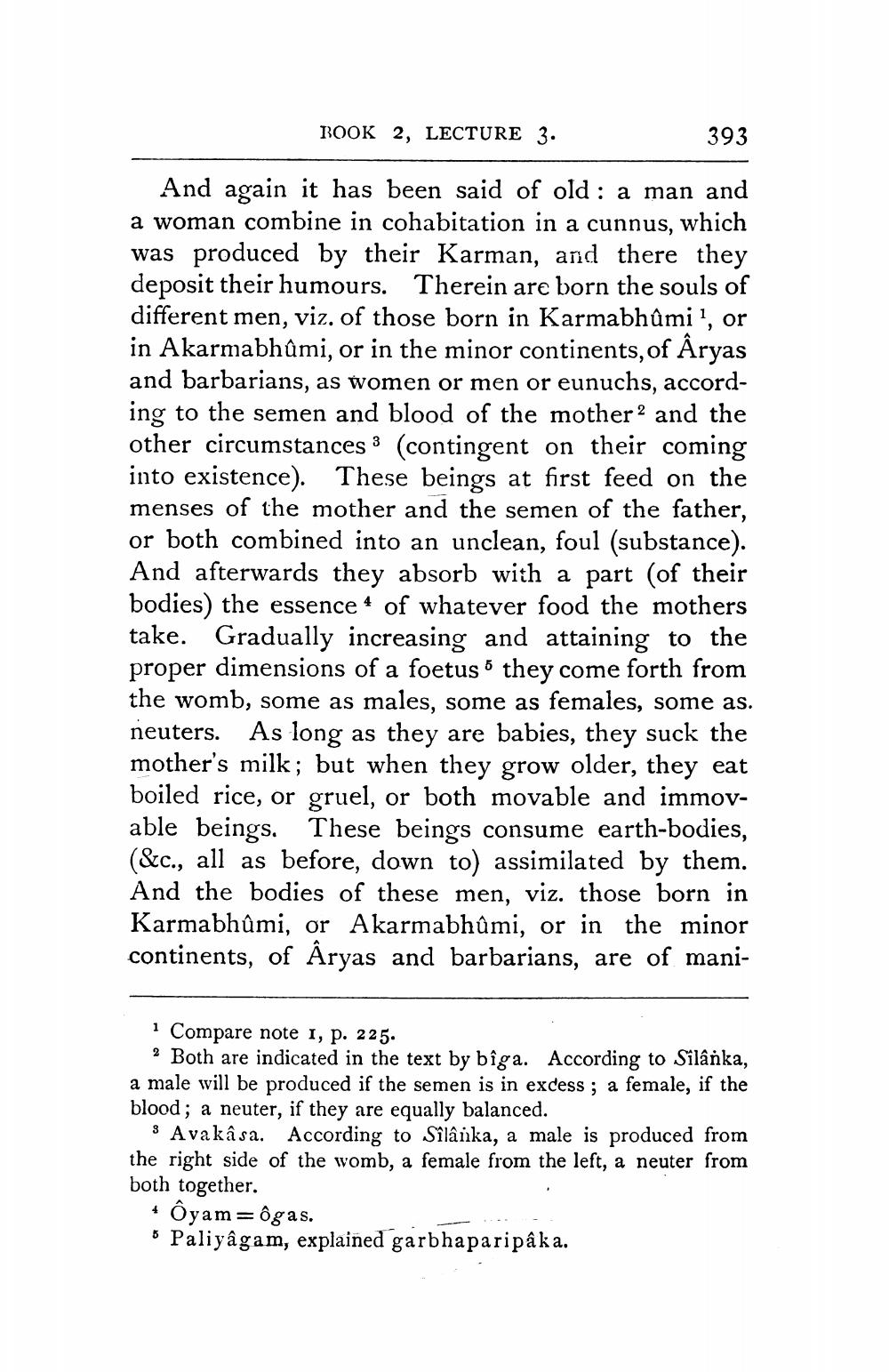________________
BOOK 2, LECTURE 3.
393
And again it has been said of old : a man and a woman combine in cohabitation in a cunnus, which was produced by their Karman, and there they deposit their humours. Therein are born the souls of different men, viz, of those born in Karmabhûmil, or in Akarmabhûmi, or in the minor continents, of Aryas and barbarians, as women or men or eunuchs, according to the semen and blood of the mother and the other circumstances 3 (contingent on their coming into existence). These beings at first feed on the menses of the mother and the semen of the father, or both combined into an unclean, foul (substance). And afterwards they absorb with a part (of their bodies) the essence 4 of whatever food the mothers take. Gradually increasing and attaining to the proper dimensions of a foetus 6 they come forth from the womb, some as males, some as females, some as. neuters. As long as they are babies, they suck the mother's milk; but when they grow older, they eat boiled rice, or gruel, or both movable and immovable beings. These beings consume earth-bodies, (&c., all as before, down to) assimilated by them. And the bodies of these men, viz. those born in Karmabhūmi, or Akarmabhûmi, or in the minor continents, of Aryas and barbarians, are of mani
i Compare note 1, p. 225.
2 Both are indicated in the text by bîga. According to Silânka, a male will be produced if the semen is in excess; a female, if the blood; a neuter, if they are equally balanced.
3 Avakâsa. According to Silânka, a male is produced from the right side of the womb, a female from the left, a neuter from both together.
+ Ôyam=ôgas. • Paliyâgam, explained garbhaparipâka.




